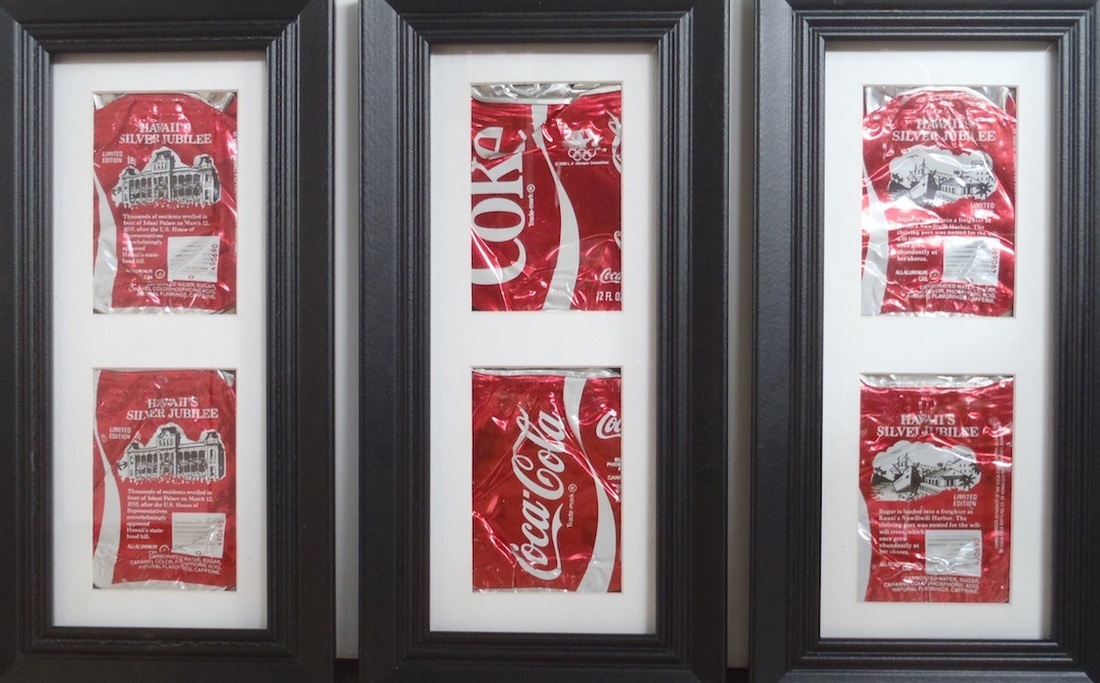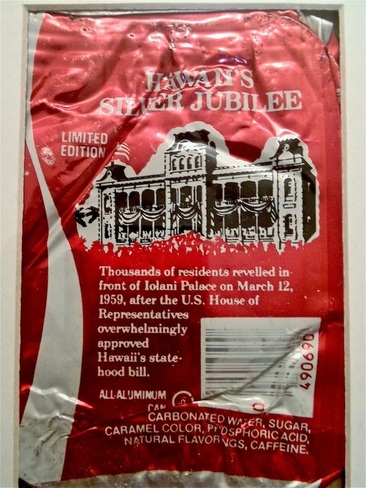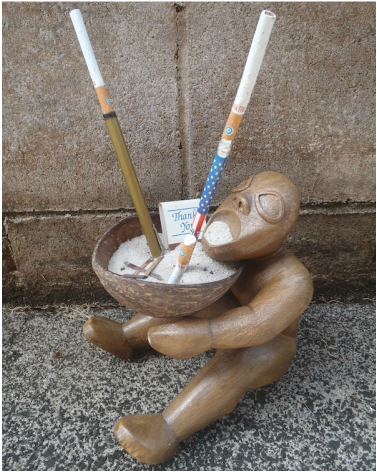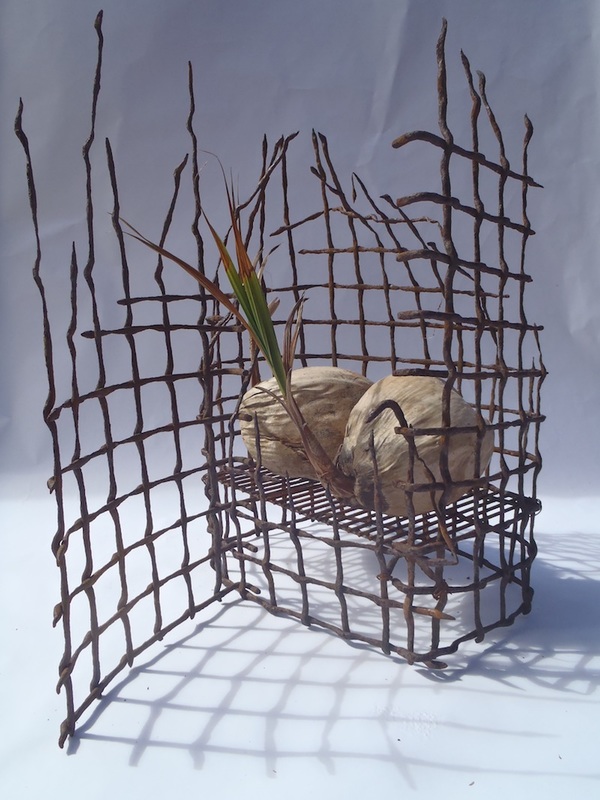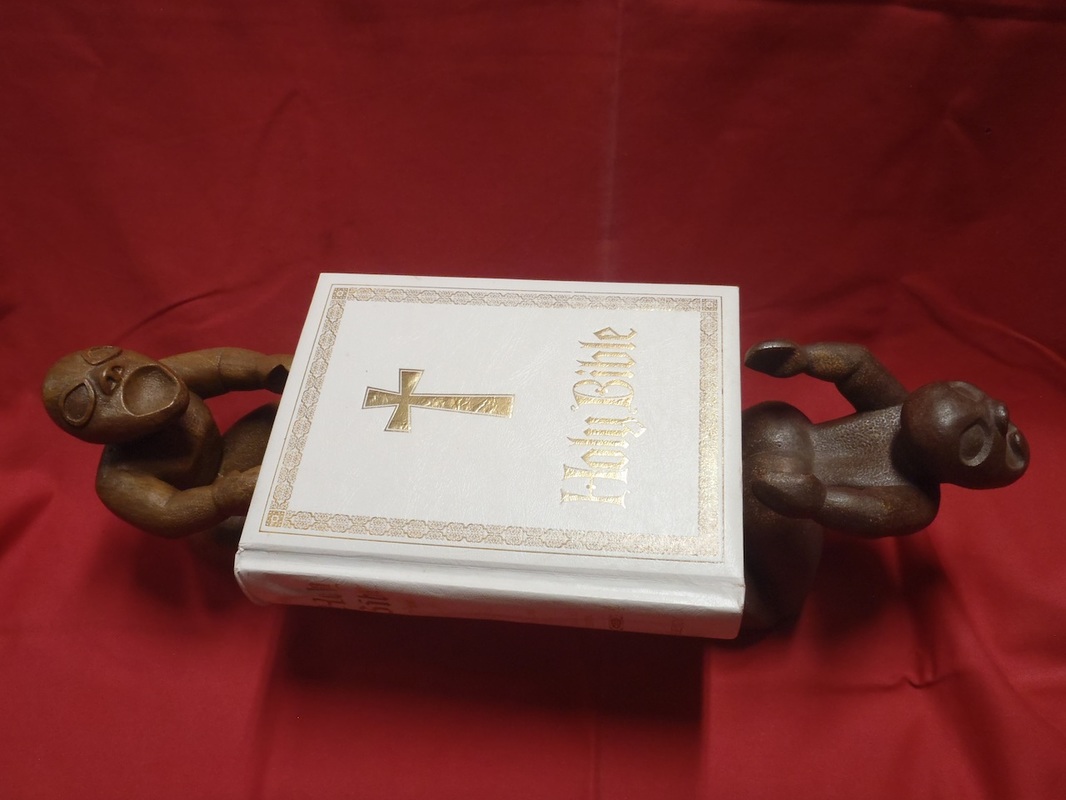Contact
These conceptual works orbit around a question presented to contemporary Hawaiian artists. How has contact affected Hawaii? Contact in the sense of Western contact with Hawaiians and its subsequent ramifications e.g. disease, concept of private ownership of land, plantations, immigration, emigration, globalization, education, religious upheaval, military occupation, annexation, colonization, incarceration, narcotics, gentrification, identity. As a Hawaiian, born and raised in the aftermath of contact, I struggle to portray positive aspects of contact. I wholeheartedly would like to shift to a positive state of mind, but today is still about the struggle of our people.
|
Comodified (1980 special edition coke cans)
The graphics imprinted on these cans are a reminder of how history can be skewed through branding. With episodes of Hawaii’s history reduced to a few sentences, cultural implications are either smoothed over or omitted altogether. Native flora makes way for industrialization and new agriculture. The palace of a once sovereign nation becomes the keepsake of the occupying country. To keep these cans in a pristine condition would suggest their form and function still retain value. By crushing these cans I reject their value as “Limited Edition” Coke cans. I value them as a trivialization of history in service of marketing a commodity. |
|
Cigarettes For a Kahuna
AKA "the Kahuna of Waikiki" is in response to a poem written by Wayne Kaumualii Westlake. A Kahuna can be translated to a religious expert, Westlake's poems incorporate a local bum, presumably a Hawaiian, who roves the streets of Waikiki always asking for money to buy cigarettes. A kahuna is charged to look after his gods, keep them fed and happy. With this piece I wondered what god would still be living in Westlake's Waikiki, and what would satiate his appetite. The cup is a split coconut shell used in ceremonies to drink Kawa root, now used as an ash tray. The sand is pure white silica imported to Hawaii, not the blonde excrement of the parrot fish. |
|
Waikiki Rat Trap
AKA "as rats climb the coconut trees" is in response to a poem written by Wayne Kaumualii Westlake. In his tales as a janitor in Waikiki, Westlake depicts the "other" Waikiki reserved for those who live on its streets. Using the niu, coconut, I wanted to show the struggle of Hawaiians trying to "root-down" in the metropolis of paradise. The frond fighting to reach beyond its stifling surroundings is negated by an absence of grounding. Elevated away from sand and soil, the young niu is doomed from the start. |
|
Consume the gods
It is Hawaiian tradition that the gods you feed are the gods that survive to care for you. Hawaiian polytheistic religion taught above all that water is life and the plants, edible or not, were the embodiment of their gods. In the fall of the Kapu system, Hawaiian religious law, Christianity filled the spiritual void, but did not address the intricacies of kanaka's (man's) balance in an island ecosystem. Subsequently, Hawaiians, like many other Pacific Islanders today, are at high risk of heart disease, hypertension and obesity. |
